FA Cup Stadiums & Stats
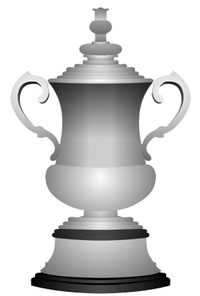
The Football Association Cup is arguably the most famous domestic cup competition in world football. Better known as simply the FA Cup, the final of contest takes place at the end of the English footballing calendar and is a genuine showpiece event, held at the famous Wembley Stadium.
On this page you can find out which teams are involved in this year’s FA Cup and what stadiums will be used for the various round draws from the third round onwards. Click on any stadium to see a full and complete ground guide.
We’ll tell you all about the competition’s history, the numerous names it’s had over the years thanks to sponsorship deals and some of the better known finals that have happened in the past. We’ll also run you through the competition’s format, from who gets to play in it and when the big boys get involved right the way through to the final and the journeys teams go on to get there. On top of that we’ll also tell you about other interesting bits and bobs, such as statistics, stadium details and even more.
FA Cup Stadiums
| Stadium | Year Opened | Capacity | Ave Attendance | Record Attendance | Record Attendance Match |
|---|---|---|---|---|---|
|
Deepdale
Preston North End |
1878 | 23408 | 16720 | 42684 | Preston v Arsenal (1938) |
|
Old Trafford
Manchester United FC |
1910 | 74310 | 73531 | 76962 | Wolves vs Grimsby Town (1939) |
|
Selhurst Park
Crystal Palace FC |
1924 | 25486 | 24881 | 51801 | Crystal Palace v Burnley (1979) |
|
St James' Park
Newcastle United FC |
1892 | 52350 | 52153 | 68386 | Newcastle v Chelsea (1930) |
|
The City Ground
Nottingham Forest |
1898 | 30404 | 29386 | 49946 | Notts Forest v Man United (1967) |
|
The Etihad
Manchester City FC |
2003 | 55000 | 53249 | 55097 | Manchester City vs Manchester United (03/03/2024) |
|
Villa Park
Aston Villa FC |
1897 | 42640 | 41921 | 76588 | Aston Villa v Derby County (1946) |
|
Vitality Stadium
AFC Bournemouth |
1910 | 11307 | 11098 | 28799 | Man U v Bournemouth (1957) |
|
Wembley
England |
2007 | 90000 | 85000 | 89874 | Portsmouth v Cardiff City (2008) |
Final
| Fixture | Date & Time | Stadium | ||
|---|---|---|---|---|
| ? | v | ? | 17th May | Wembley |
Round of 16
| Fixture | Date & Time | Stadium | ||
|---|---|---|---|---|
| Aston Villa | v | Cardiff | 28th Feb 20:00 | Villa Park |
| Crystal Palace | v | Millwall | 1st Mar 12:15 | Selhurst Park |
| Preston | v | Burnley | 1st Mar 12:15 | Deepdale |
| Bournemouth | v | Wolves | 1st Mar 15:00 | Vitality Stadium |
| Man City | v | Plymouth | 1st Mar 17:45 | Etihad |
| Newcastle | v | Brighton | 2nd Mar 13:45 | St James' Park |
| Man United | v | Fulham | 2nd Mar 16:30 | Old Trafford |
| Notts Forest | v | Ipswich Town | 3rd Mar 19:30 | City Ground |
Round of 32
| Fixture | Date & Time | Stadium | ||
|---|---|---|---|---|
| Man United | v | Leicester | 7th Feb 20:00 | Old Trafford |
| Leeds | v | Millwall | 8th Feb 12:15 | Elland Road |
| Leyton Orient | v | Man City | 8th Feb 12:15 | Brisbane Road |
| Coventry | v | Ipswich Town | 8th Feb 15:00 | Coventry Arena |
| Everton | v | Bournemouth | 8th Feb 15:00 | Goodison Park |
| Preston | v | Wycombe | 8th Feb 15:00 | Deepdale |
| Southampton | v | Burnley | 8th Feb 15:00 | St Mary's |
| Stoke | v | Cardiff | 8th Feb 15:00 | Bet365 Stadium |
| Wigan | v | Fulham | 8th Feb 15:00 | Brick Community Stadium |
| Birmingham | v | Newcastle | 8th Feb 17:45 | St. Andrew's |
| Brighton | v | Chelsea | 8th Feb 20:00 | Falmer Stadium |
| Blackburn | v | Wolves | 9th Feb 12:30 | Ewood Park |
| Plymouth | v | Liverpool | 9th Feb 15:00 | Home Park |
| Aston Villa | v | Tottenham | 9th Feb 17:35 | Villa Park |
| Doncaster | v | Crystal Palace | 10th Feb 19:45 | Eco-Power Stadium |
| Exeter | v | Notts Forest | 11th Feb 20:00 | St James Park |
Round of 64
| Fixture | Date & Time | Stadium | ||
|---|---|---|---|---|
| Sheffield United | v | Cardiff | 9th Jan 19:00 | Bramall Lane |
| Everton | v | Peterborough | 9th Jan 19:45 | Goodison Park |
| Fulham | v | Watford | 9th Jan 19:45 | Craven Cottage |
| Wycombe | v | Portsmouth | 10th Jan 20:00 | Adams Park |
| Aston Villa | v | West Ham | 10th Jan 19:45 | Villa Park |
| Birmingham | v | Lincoln | 11th Jan 12:00 | St. Andrew's |
| Bristol City | v | Wolves | 11th Jan 12:00 | Ashton Gate |
| Middlesbrough | v | Blackburn | 11th Jan 12:00 | The Riverside |
| Liverpool | v | Accrington Stanley | 11th Jan 12:15 | Anfield |
| Bournemouth | v | West Brom | 11th Jan 15:00 | Vitality Stadium |
| Brentford | v | Plymouth | 11th Jan 15:00 | Community Stadium |
| Chelsea | v | Morecambe | 11th Jan 15:00 | Stamford Bridge |
| Exeter | v | Oxford | 11th Jan 15:00 | St James Park |
| Leicester | v | QPR | 11th Jan 15:00 | King Power Stadium |
| Norwich | v | Brighton | 11th Jan 15:00 | Carrow Road |
| Notts Forest | v | Luton | 11th Jan 15:00 | City Ground |
| Preston | v | Charlton | 11th Jan 15:00 | Deepdale |
| Reading | v | Burnley | 11th Jan 15:00 | Madjeski Stadium |
| Sunderland | v | Stoke | 11th Jan 15:00 | The Stadium Of Light |
| Leeds | v | Harrogate | 11th Jan 17:45 | Elland Road |
| Man City | v | Salford City | 11th Jan 17:45 | Etihad |
| Coventry | v | Sheffield Wed | 11th Jan 18:00 | Coventry Arena |
| Leyton Orient | v | Derby | 11th Jan 18:00 | Brisbane Road |
| Mansfield | v | Wigan | 11th Jan 18:00 | Field Mill |
| Hull City | v | Doncaster | 12th Jan 12:00 | MKM Stadium |
| Tamworth | v | Tottenham | 12th Jan 12:30 | The Lamb Ground |
| Arsenal | v | Man United | 12th Jan 15:00 | The Emirates |
| Crystal Palace | v | Stockport | 12th Jan 15:00 | Selhurst Park |
| Ipswich Town | v | Bristol Rovers | 12th Jan 15:00 | Portman Road |
| Newcastle | v | Bromley | 12th Jan 15:00 | St James' Park |
| Southampton | v | Swansea | 12th Jan 16:30 | St Mary's |
| Millwall | v | Degenham | 13th Jan 19:30 | The Den |
Tournament Format
FA Cup Qualification

Entry into the FA Cup is available for any team down to level 10 of the league system in England. If you’re not sure what that means then you’ve come to the right place. Levels 1-4 are taken up by the 92 clubs that play in the Premier League and the Football League.
The language is complicated for this next bit, but levels 5-10 are made up of the hundreds of non-league teams that feature in Steps 1-6 of the National League System. In short, if you’re playing for a team that is more than just The Dog & Duck’s pub side, there’s a good chance you could find yourself playing in the early rounds of the competition.
The actual criteria is your side must have played in the FA Cup, the FA Trophy the FA Vase in the past year. Teams must also play at a suitable ground and are sometimes asked to move to bigger more equipt grounds when playing more popular teams.
| Level | Leagues | Clubs |
|---|---|---|
| 10 | 19 | 356 |
| 9 | 14 | 277 |
| 8 | 7 | 140 |
| 7 | 4 | 88 |
| 6 | National League North & South | 44 |
| 5 | National League | 24 |
| 4 | League Two | 24 |
| 3 | League One | 24 |
| 2 | Championship | 24 |
| 1 | Premier League | 20 |
Whether it be naming the leagues, deciding which teams are eligible to play in what competition or deciding upon the rules to a game, the English don’t like to do anything too simplistically.
Qualification for the FA Cup also falls into this bracket, with a mini-tournament taking place before the competition proper gets underway. Even though teams aren’t officially seeded for the various draws that take place, the bigger teams don’t enter the competition until later on, meaning the smaller teams get a chance to go far in it before most are swatted aside.
These early rounds are also regionalised, meaning that non-league sides don’t have to pay a fortune in travel costs for a competition they’re not going to win.
There are twelve rounds to the FA Cup, with the first six making up the Qualifying Competition. This is where the non-league sides go head-to-head to figure out who will advance through to the competition proper, with 32 teams progressing to the point where they meet the first of the professional teams that make up ‘The 92’.
The cup is a knockout tournament from the word go, with lower league teams added on a gradual basis round by round. The 32 teams that progress from the early rounds are joined in the First Round Proper by the 48 teams from League One and League Two.
| Round | Entry Level | New Teams Entering | Teams from Previous Round | Teams Total | No Fixtures |
|---|---|---|---|---|---|
| Extra Preliminary | 9 & 10 | 368 | – | 368 | 184 |
| Preliminary | 8 | 136 | 184 | 320 | 160 |
| First Qualifying | 7 | 72 | 160 | 232 | 116 |
| Second Qualifying | 6 | 44 | 116 | 160 | 80 |
| Third Qualifying | – | None | 80 | 80 | 40 |
| Fourth Qualifying | 5 | 24 | 40 | 64 | 32 |
After those teams have been randomly drawn to face each other, forty teams progress to the Second Round where no more teams join the competition. This is essentially a ‘weeding out process’, where the non-league teams are put to the sword by the lower league professional teams.
Occasionally a smaller team, known as ‘minnows’ gets reasonably far in the cup and everyone loses their head. If they knockout a big team, or enjoy a ‘giant killing’, then things really go to pot. No non-league side has managed to reach the quarter-finals in the modern era, however.
| Round | Entry Level | New Teams Entering | Teams from Previous Round | Teams Total | No Fixtures |
|---|---|---|---|---|---|
| Round One | 3 & 4 | 48 | 32 | 80 | 40 |
| Round Two | – | – | 40 | 40 | 20 |
The Third Round Onwards
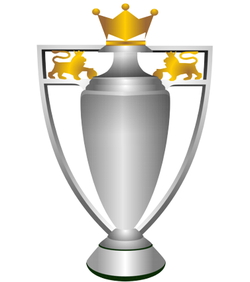
Forty teams play each other in the Second Round but only twenty emerge victorious. They are then joined in the Third Round by the twenty-four teams from the Championship and the twenty teams from the Premier League. This is when the competition gets serious and really starts to heat up.
The problem for a lot of the ‘big’ teams, especially from the Premier League, is that the FA Cup joins a heavy fixture schedule that could also involve the Champions League, the Europa League or the League Cup. for this reason a number of teams will play ‘weakened sides’ in the early rounds of the competition, hoping that they will get the added bonus of progression in the cup and a chance to give their younger or fringe players some experience.
Of the sixty-four teams that went head-to-head in the Third Round, only 32 make it through to the Fourth Round. Both Third and Fourth Rounds are typically played in January, so an already hectic fixture schedule thanks to Christmas can become unbearable for some teams.
In 2018 the FA abandoned replays from the 5th round onwards and then six years later replays were scrapped in the Cup from the 1st round onwards in 2024-25. Still. the FA Cup is not a competition for the weak willed, with drawn matches involving extra-time and penalties if the two teams still can’t be decided after two games.
| Round | Entry Level | New Teams Entering | Teams from Previous Round | Teams Total | No Fixtures |
|---|---|---|---|---|---|
| Round Three | 1 & 2 | 44 | 20 | 64 | 32 |
| Round Four | – | – | 32 | 32 | 16 |
| Round Five | – | – | 16 | 16 | 8 |
| Quarter Finals | – | – | 8 | 8 | 4 |
| Semi Finals | – | – | 4 | 4 | 2 |
| Final | – | – | 2 | 2 | 1 |
Sixteen teams progress to the Fifth Round. The draws for the rounds take place after the fixtures from the previous round have been played, even if the ties haven’t been settled. There are no replays to worry about anymore but games can still be postponed, especially around the 3rd and 4th round in January and February.
The draw for the Fifth Round could take place on the 26th of January, meaning that the two teams know who they will have to play against if they make it further in the competition before they’ve even had their tie settled. It can give teams inspiration, with the knowledge that they’d face a rival team in the next round driving them on to success.
The Sixth Round is the quarter-final stage of the competition, in which the remaining eight teams go head-to-head to decide who will make the semi-finals. The Fifth Round matches tend to take place in February and the Sixth Round games a played in March. This is the last round in which games are played at the home ground of one of the teams playing. The first name out of the hat when the draw is made hosts the match.
From 2024-25 all FA Cup rounds are now held on weekends and the fourth and fifth rounds are also now held on weekends without Premier League games, like the third round. The idea is to showcase the Cup better in the packed schedule.
The Semi-Finals And The Final
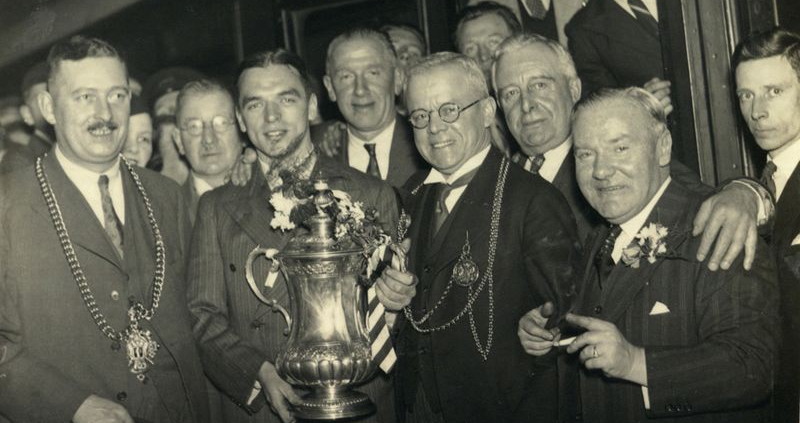
Once the dust has settled at the end of the Sixth Round, four teams progress to the Semi-Final stage of the competition. The Semi-Finals have traditionally always been played at a ‘neutral venue’, with numerous grounds such as Villa Park, Old Trafford and Hillsborough being used on a regular basis. Since the opening of the new version of Wembley Stadium, however, the Semi-Finals have been played at the home of the England international team.
Many people have been critical of this decision by the FA, suggesting that it’s only been done in order to allow them to raise money to pay for the stadium. Those opposed to the use of Wembley suggest it takes the shine of reaching the final, having already played a game there. Like when the X-Factor introduced live auditions, there’s nothing for teams to get excited about and no journey for them to go on.
The Semi-Finals are played in April and the games are decided on the day. If there is no winner at the end of ninety minutes then the match goes to extra-time and penalties in order to decide who will make the Final. Two teams return to Wembley at the end of May to fight it out for the right to lift the FA Cup trophy high in the air. Typically the final is played the Saturday after the end of the Premier League season, though there have been a couple of exceptions to this rule.

In the 2012-2013 season, for example, Wembley was used to host the Champions League final, so the FA Cup final was held before the end of the Premier League season in order to allow the stadium to be made ready for the final of the European showpiece tournament.
The final has not always been held at Wembley, with Cardiff’s Millennium Stadium used regularly whilst Wembley was knocked down and the new Wembley built on the same site. The winners of the FA Cup qualify for the group stages of the following season’s Europa League, presuming that they haven’t already qualified for either that or the Champions League through their league performance.
The winner also plays in the FA Community Shield against the team that won the Premier League in the same season. The Community Shield is a friendly match that is typically seen as the ‘curtain raiser’ for the season ahead.
Previous Winners
The table below shows all teams that have won the FA Cup on two or more occasions
| Team | No FA Cups | No Runners Up | First Won | Last Won |
|---|---|---|---|---|
| Arsenal | 14 | 7 | 1930 | 2020 |
| Man United | 13 | 9 | 1909 | 2024 |
| Liverpool | 8 | 7 | 1965 | 2022 |
| Tottenham | 8 | 1 | 1901 | 1991 |
| Chelsea | 8 | 8 | 1970 | 2018 |
| Aston Villa | 7 | 4 | 1887 | 1957 |
| Man City | 7 | 6 | 1904 | 2023 |
| Newcastle | 6 | 7 | 1910 | 1955 |
| Blackburn | 6 | 2 | 1884 | 1928 |
| Everton | 5 | 8 | 1906 | 1995 |
| West Brom | 5 | 5 | 1888 | 1968 |
| Wanderers | 5 | 0 | 1872 | 1878 |
| Wolves | 4 | 4 | 1893 | 1960 |
| Bolton | 4 | 3 | 1923 | 1958 |
| Sheffield Utd | 4 | 2 | 1899 | 1925 |
| Sheffield Wed | 3 | 3 | 1896 | 1935 |
| West Ham | 3 | 2 | 1964 | 1980 |
| Preston NE | 2 | 5 | 1889 | 1938 |
| Old Etonians | 2 | 4 | 1879 | 1882 |
| Portsmouth | 2 | 3 | 1939 | 2008 |
| Sunderland | 2 | 2 | 1937 | 1973 |
| Nottingham Forest | 2 | 1 | 1898 | 1959 |
| Bury | 2 | 0 | 1900 | 1903 |
FA Cup Stats
| Tournament Stats | |
|---|---|
| First Year | 1871 |
| Highest Number Of Teams | 763 (2011-2012) |
| Titles (City) | London (43) |
| Highest Attendance | 126,057 officially, 300,000 estimated (Bolton Wanderers v West Ham United, 28/04/1923) |
| Lowest Attendance | 0 (2020) - played behind closed doors due to corona virus |
| Prize Money Winner | £3.9 million |
| Minimum Prize Money | £375 (Extra-Preliminary round loser) |
| Qualifying Teams | 184 |
| Leading Manager | Arsene Wenger (7) |
| Club Stats | |
|---|---|
| Titles | Arsenal (14) |
| Runner Up | Man United (9) |
| First League & FA Cup Double | Preston North End (1889) |
| Consecutive Final Wins | Wanderers, Blackburn Rovers (3) |
| Most Appearances Without Winning | Queen's Park, Birmingham, Watford & Crystal Palace (2) |
| Biggest Win | Preston North End 26 - Hyde 0 (15th October 1887) |
| Biggest Final Win | Bury 6 - Derby County 0 (1972-1973) & Man City 6 - Watford 0 (2018-19) |
| Winner Of Two Nation’s Cups | Cardiff City (FA Cup, Welsh Cup 1927) |
| Player Stats | |
|---|---|
| Highest Scorer | Henry “Harry” Cursham (49) |
| Most Goals In A Game | Ted MacDougall (9) |
| First FA Cup Hat-Trick | William Townley (1890) |
| Most FA Cup Winners’ Medals | Ashley Cole (7) |
| Most Goals In Finals | Ian Rush (5) |
| Youngest Player To Score In Final | Norman Whiteside (18 years 19 days) |
| Oldest Player To Score In Final | Billy Hampson (41 years 257 days) |
About the FA Cup
In The Beginning

When football was first being properly established in England there were countless different versions of the rules being played by teams who took part in games. In 1863 the Football Association was established with the aim of solidifying the rules that teams played by, producing a booklet entitled ‘The Laws Of The Game Of Association Football’.
In 1871 the FA’s Secretary, C. W. Alcock, wrote a letter to the rest of the FA stating, “It is desirable that a Challenge Cup should be established in connection with the Association for which all clubs belonging to the Association should be invited to compete”. And with those words, the FA Cup was born.
The first ever iteration of the oldest association football cup competition in the world kicked off in November of 1871, though it was a lot less complicated an affair than it is nowadays. Just thirteen games had to be played in order for Wanderers to be named as the first ever winners, with the final being played on the 16th of March 1872.
They went on to win it again the following year and the cup as we recognise it today didn’t go on to be formed until qualifying rounds were first introduced for the 1888-1889 season.
FA Cup Replays
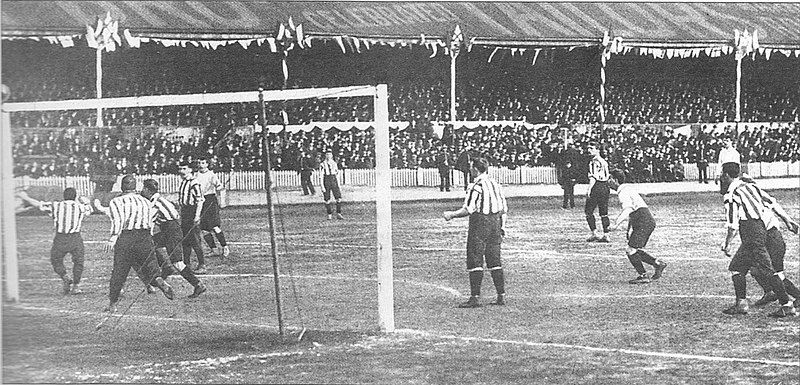
Until the early 1990s FA Cup ties had to be decided within ninety minutes of football. That meant that if the tie wasn’t settled after the original match had been played then it had to go to a replay.
If that game didn’t settle the tie then it would be replayed again and again until an outright winner was found. In the past as many as six replays were played in order to get a winner. In fact, Fulham’s 1975 campaign saw them have to play twelve matches over six rounds to be able to reach the final.
The idea of the replay still exists today, though only one replay is necessary to decide who will progress in the competition and since 2024 it only applies to the qualifying rounds. If the two teams can’t be separated after 180 minutes of football then the game will go to extra-time and, if necessary, penalties.
Historically neither the Semi-Finals nor the Final were immune from replays and the cup has been won on a replay fourteen teams in its history. The first Final replay was as early as 1875, when Royal Engineers beat Old Etonians at the second time of asking. The most recent final replay was in 1993, when Arsenal were victorious over Sheffield Wednesday.
Nowadays any games from the 1st round onwards don’t have to go to replays, as extra-time and penalties are played at the end of ninety minutes of those games to find a winner. In 2018 it replays were scrapped from the 5th round onwards but ever growing fixture congestion meant that replays were abandoned from the 1st round onwards in 2024-25.
In the past the replays would be three or four days after the original time, but police advice meant that was switched to at least ten days later from the 1991-1992 season. The first ever FA Cup penalty shoot-out took place on the 26th of November 1991 when Rotherham United knocked out Scunthorpe United by that method.
Wembley and FA Cup Final Stadiums
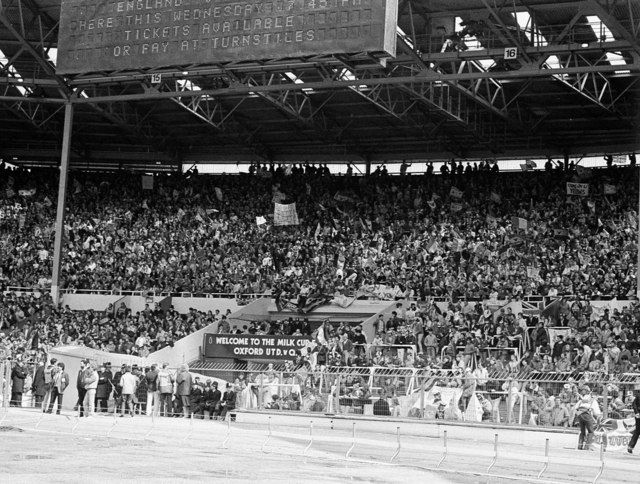
As we’ve already mentioned, Wembley Stadium plays a large part in the mystique of the FA Cup. The first cup final to be played at the old Wembley was on the 28th of April 1923, just four days after the building was completed. Originally called The British Empire Exhibition Stadium but known simple as Empire Stadium, the FA incredibly decided against ticketing that first match between Bolton Wanderers and West Ham United.
Though the official attendance is noted at 127,000 that’s just because that was the ground’s capacity – estimates put the official attendance at between 240,000 and 300,000. They introduced ticketing as standard for future games…
Prior to the opening of Wembley the FA Cup Final was held in a number of locations, most notably Kennington Oval and Crystal Palace, though Old Trafford, Bramall Lane and Stamford Bridge were all also used. From Wembley’s opening in 1923 through to its closing in 2000 Wembley held every FA Cup Final apart from one – the replay of 1970’s match between Chelsea and Leeds United that was played at Old Trafford.
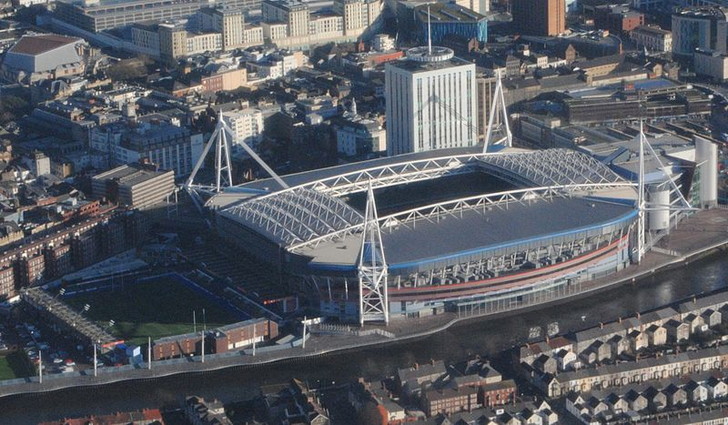
The last FA Cup Final to be held at the old Wembley took place on the 20th May 2000, with Chelsea beating Aston Villa thanks to a second-half goal from Roberto Di Matteo. The Final then spent the next six years being played at the Millennium Stadium in Cardiff whilst the new Wembley was being built.
The inaugural Final there saw Liverpool beat Arsenal 2-1 as they were on their way to a unique FA Cup, League Cup and UEFA Cup treble.
Fittingly Liverpool also won the last FA Cup Final at the Millennium Stadium in 2006, with Steven Gerrard famously scoring an incredible last minute goal to take the game to extra-time and then penalties. The match finished 3-3 in normal time and has since become known as ‘The Steven Gerrard Final’.
The Wembley Stadium that we now and recognise nowadays hosted its first FA Cup Final in 2007 when Chelsea beat Manchester United 1-0. It has been a happy hunting ground for the West London club, with the Blues having won four out of the ten finals that have been played there to date.
Designed by HOK Sport amongst others, the 90,000 capacity makes it the largest ground in England. The famous twin towers no longer stand outside the ground, but a large arch is the new showpiece bit of architecture that you should look out for on your walk along Wembley Way.
The Hillsborough Disaster
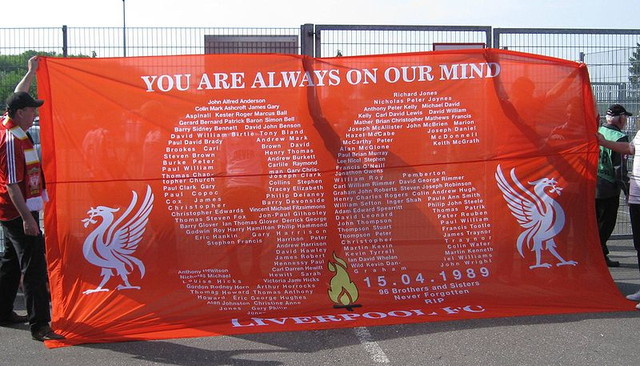
No conversation about the FA Cup would be complete without mention of the Hillsborough Disaster, the greatest British sporting disaster of all time. Though we couldn’t possibly give you an in-depth report into it here, it’s important that we at least give you a brief overview of how 96 innocent football fans lost their lives.
The disaster occurred on the 15th of April 1989 during a match between Nottingham Forest and Liverpool. It was the Semi-Final of the FA Cup and the game took place at Hillsborough Stadium.
Catastrophic police failings coupled with an entirely unsuitable venue and other poor decisions from members of authority, such as the FA’s failure to ensure the stadium had a valid safety certificate, led to too many fans being forced into over-crowded pens after the match commander, Chief Superintendent David Duckenfield, ordered an exit gate to be opened. What followed was a human crush that killed 96 people and left over 750 others with serious injuries.
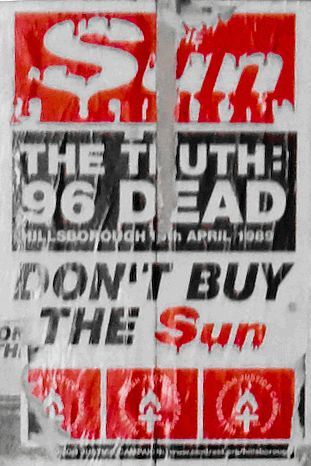
In an attempt to hide their failings, members of the police initiated a cover-up that placed the blame on Liverpool fans themselves, despite the fact that the supporters at the ground on the day were nothing short of heroes. Senior police officers leaked false information to the press, with The Sun newspaper famously printing a copy with the headline “The Truth”, followed by nothing but outrageous lies.
The stories that vilified the Liverpool fans were disproved almost immediately, though the damage had been done and many members of the general public believed the lies of the police.
The initial inquest into the deaths declared that they were ‘Accidental’, however the victims’ families refused to accept that no one was to blame for the loss of their loved ones. Remarkably it took another 27 years before a fresh inquest delivered the correct verdict of ‘Unlawful Killing’, exonerating the fans of any blame and putting the fault of the disaster squarely at the foot of the police.
The aftermath of the disaster led to numerous changes to the way football was ran in the United Kingdom, with all-seater stadiums introduced to replace the standing terraces that had existed before. It also led to the removal of spectator fencing that had been introduced to stop pitch invasions but merely stopped the fans being able to escape from the pens at Hillsborough.
Sadly it has also led to some Draconian rules that remain in place, such as the inability of fans to drink within sight of the football pitch, despite the fact that it has been categorically proven that alcohol consumption played no part whatsoever in the disaster.
If you are under any doubts about the seriousness of Hillsborough and the cover-up that followed then we urge you to research the disaster thoroughly. There are numerous excellent sources you can turn to, including the book “Hillsborough: The Truth” by professor Phil Scraton, the Jimmy McGovern docudrama and the 2014/2016 documentary into the disaster.
The cover-up was initiated by the police on the day and given credence by the politicians of the time. Hillsborough was not only the worst sporting disaster in British history but also the biggest national disgrace of our time.
None Participation

Given that Football League and Premier League teams automatically qualify for the FA Cup and non-league teams are also eligible to enter the early rounds as long as they know someone whose initials are F and A, it’s rare that a team decides not to participate in the competition. It’s even rarer for the holders of the cup not to enter, yet in the 1999-2000 season that is exactly what happened.
Manchester United completed a unique treble in the 1998-1999 season when they won the FA Cup, the Premier League and the Champions League. The Champions League victory meant they qualified for the Club World Championship the following season, leaving them with a difficult choice to make.
They were afraid that fixture congestion would cause them to falter in their defence of the league and the Champions League and they didn’t want to ‘devalue the FA Cup’ by playing weaker teams in the competition.
The result was that Manchester United did not enter the FA Cup in the 1999-2000 season, instead entering the World Club Championship, the Premier League and the Champions League.
How not entering the competition at all showed it more respect than playing a team full of squad players was never quite made clear, but United failed to get out of the group stage of the World Club Championship and won the Premier League by an 18-point margin.
The Trophy

The FA Cup trophy is presented to the winner of the competition, with the winning team entitled to hold on to it as a ‘loan’ from the FA until the 1st of March of the year following the final. There have only been two designs of the FA Cup, though five different physical trophies have been in existence. The original trophy, known as ‘the little tin idol’, was just 18 inches in height and was stolen in 1895 and never found.
It was replaced by a replica that was used until 1910 when Manchester United had their own replica of it made, leading the Football Association to realise they didn’t own the copyright for the trophy.
The design that we know and love nowadays was introduced in 1911 and has been used ever since. A replica was built in 1992 in order to preserve the original trophy. The replica itself was replace in 2014 with a heavier version, having suffered the signs of wear and tear from two decades worth of use.
The trophy is in three parts: The cup, a lid and the base. The name of the winner is engraved on the base of the trophy after the end of the match and before the presentation of it to the winning team, that normally occurs at the Royal Box.
Previous Tournaments
FA Cup 2023-24
In a repeat of the previous year Man City took on Man United again in another Manchester Derby final. The script was supposed to be the same with Man City running out as easy winners but that wasn’t the case. Man United just wanted it more and played brilliantly to beat City 2-1 and earn back some pride from their rivals who have dominated them in the last decade.
FA Cup 2022-23
Man City came out as deserved winners in this FA Cup final derby against Manchester United. Despite a resurgent season for the red devils City were still leaps and bounds ahead of them as they cruised to a 2-1 win chasing the treble. It was the 7th cup for City while United achieved the honour of making the joint-most finals with Arsenal, 21. At the same time United became the first team to be beaten in nine FA Cup finals.
FA Cup 2021-22
Back to normal with a full house at Wembley for the first time since 2019. Liverpool and Chelsea, who already faced off in the League Cup final, went head to head in the final. As with the League Cup the game was a draw (0-0) and went to penalties and Liverpool again won, this time 6-5 in a tight game. In 420 minutes of football between Liverpool and Chelsea in 2021/22 (League, League Cup & FA Cup) the only difference between the teams was on penalties.
FA Cup 2020-21
The majority of matches were played in empty stadiums and replays were removed due to a shortened congested season. This did nothing to remove the magic of the Cup, though, as four time runners up Leicester finally won their first FA Cup beating Chelsea 1-0 a final held in front of 20,000 fans, a novelty at the time.
FA Cup 2019-20
In a season disrupted by coronavirus Arsenal claimed their 14th FA Cup beating Chelsea 2-1 in the final. It was the latest final ever (1st August) and played behind closed doors.
FA Cup 2018-19
Manchester City completed a domestic treble beating Watford 6-0, a joint record final victory last achieved in 1953 by Bury.
FA Cup 2017-18
Chelsea won the cup for the 8th time, beating Manchester United 1-0 to prevent them equalling Arsenal’s win record.
FA Cup 2016-17
Arsenal won a record 13th Cup, Arsene Wenger winning a managerial record 7th throphy in a 3-1 Victory over Chelsea.
